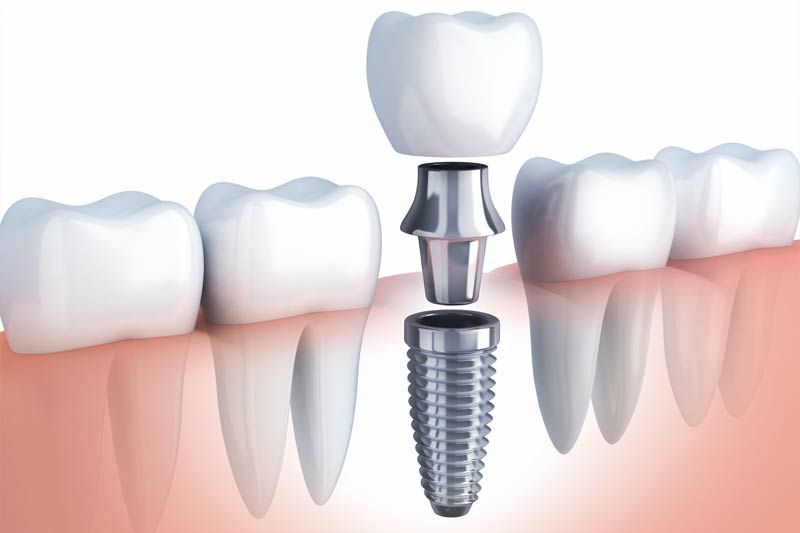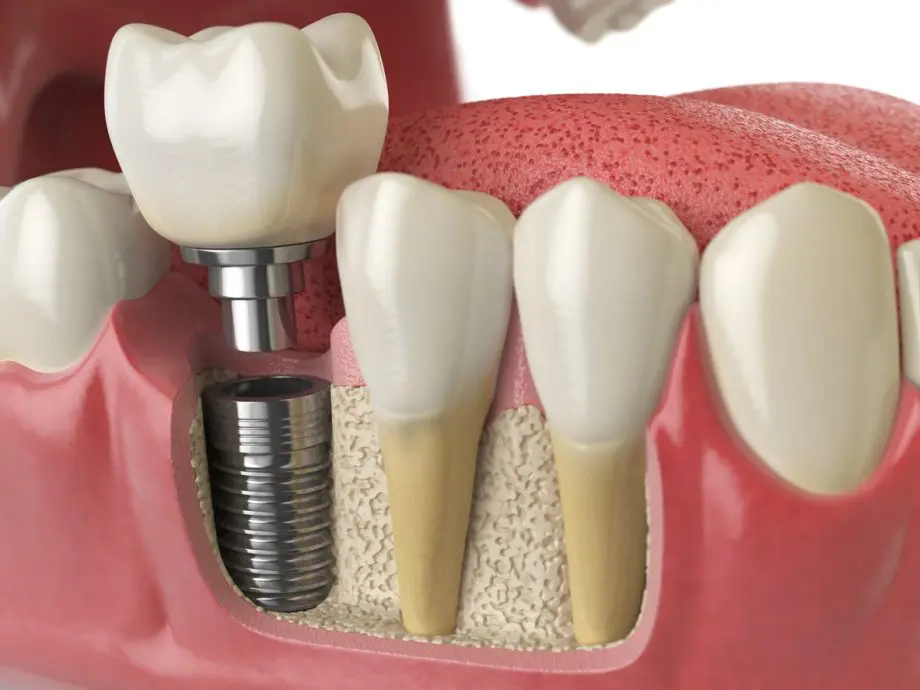Dentist Office Hartford OH Types of Dental Implants
Dentist Office Hartford OH Types of Dental Implants
Blog Article
Dental Care Columbus OH Permanent Dental Implants
Dental implants have emerged as a preferred choice for individuals in search of a long-term solution to tooth loss. One essential aspect of understanding dental implants entails their effect on adjacent teeth. This is especially essential for guaranteeing the health and longevity of the complete dental structure.
When a dental implant is positioned, it mimics the function of a natural tooth root. By doing so, it helps maintain the integrity of the encompassing bone structure. Natural teeth rely on a balanced, interconnected system for support, and dental implants can contribute positively to that dynamic. The stability offered by the implant allows for better distribution of bite forces, which might prevent undue stress on adjacent teeth.
Premier Dental Johnstown OH Dental Implants: Services and Expertise
In circumstances where a tooth is missing, the neighboring teeth may shift into the vacant area. This shifting can result in misalignment and varied different complications. By placing a dental implant, the danger of this shifting is decreased, as the implant acts as a placeholder that preserves the natural alignment of surrounding teeth. This preventive impact is essential for long-term oral health and function.
Another essential consideration is bone loss. When a tooth is misplaced, the jawbone within the space can start to deteriorate because of a lack of stimulation. Dental implants help prevent this bone loss by providing the necessary stimulation to the jawbone, very related to a natural tooth root would. This preservation of bone not solely supports the implant itself but also contributes to the soundness of adjacent teeth.
The sort of material used in dental implants, typically titanium, has a unique property of osseointegration, which means it fuses with the bone over time. This integration offers a sturdy basis for the artificial tooth while ensuring that the implant doesn’t negatively affect surrounding buildings. As the implant integrates, it creates an surroundings that contributes positively to the health of the adjacent teeth.

Regular dental check-ups play an essential role in monitoring the influence of dental implants on adjacent teeth. Professional assessments might help determine any points that will come up, ensuring immediate remedy and sustaining the health of the complete dental arch. These evaluations may include X-rays to check for bone density and the general condition of the implant and surrounding teeth.
Pediatric Dentist Hartford OH What Are Dental Implants? Types, Benefits, and More
Oral hygiene practices are very important for individuals with dental implants. Proper brushing and flossing habits not only contribute to the longevity of the implant but also make certain that adjacent teeth stay wholesome. Food particles and plaque that accumulate across the implant may cause problems, together with peri-implantitis, an inflammatory condition that can have an result on surrounding teeth and tissues.
The positioning of dental implants can affect the health of adjacent teeth. If an implant is placed at an angle or not correctly aligned, it could lead to increased strain on neighboring teeth. This misalignment could cause put on and tear on adjacent enamel, potentially leading to cavities or other dental points. Therefore, the ability and expertise of the dentist performing the implant process are paramount in achieving a successful outcome.
In some situations, additional procedures could also be essential to arrange the encircling space for an implant. Bone grafting or sinus lifts may help create a better environment for the implant. While these procedures are geared toward enhancing the positioning for the implant, in addition they serve to protect the health of adjacent teeth by making a more stable foundation.
Dental Center New Albany OH The Advantages, Risks, and Insurance for Dental Implants

As dental technology evolves, advancements in implant techniques result in higher outcomes. Improved imaging strategies and computer-aided design allow for extra exact placements that minimize risk to adjacent teeth. With these advancements, the probability of problems that would arise from improperly placed implants diminishes significantly.
Post-operative care also plays a critical position in making certain that adjacent teeth remain unaffected. Patients must adhere to the dentist's instructions relating to food regimen, oral hygiene, and follow-up visits. Neglecting these pointers might result in problems that impact not only the implant but additionally the neighboring teeth.
Dentist Office Columbus OH Full Mouth Dental Implants
In conclusion, dental implants, when positioned correctly and cared for correctly, have the potential to boost the health of adjacent teeth quite than detract from it. They maintain alignment, stimulate bone progress, and provide a safe basis that supports the complete dental structure. Understanding how dental implants have an result on adjacent teeth emphasizes their importance as a long-term tooth replacement resolution. With steady developments in technology and methods, the mixing of dental implants into restorative dentistry is turning into more and more profitable, ensuring wholesome and practical smiles for years to come back.

- Dental implants prevent adjacent teeth from shifting into the gap created by a missing tooth, serving to to take care of correct alignment within the mouth.
- The rebuilding of the jawbone via an implant can stimulate surrounding teeth and keep them wholesome by providing needed bone density that may otherwise diminish.
- Adjacent teeth benefit from the stabilization that dental implants present, reducing the risk of damage and tear from misalignment during chewing.
- Implants can defend adjacent teeth by performing as a framework, which can distribute bite forces evenly across the dental arch as a substitute of placing undue stress on neighboring teeth.
- When positioned correctly, dental implants reduce the danger of gum disease which can affect adjacent teeth by maintaining a clear and healthy gum line.
- The presence of an implant can facilitate an improved oral hygiene routine, as it eliminates the need for bridgework that could lure food particles around adjacent teeth.
- Regular dental check-ups can reveal how well the implant integrates with surrounding constructions, making certain ongoing health for adjacent teeth.
- Implants can prevent the natural process of bone resorption that occurs after tooth loss, positively impacting the soundness and longevity of adjacent teeth.
- The use of dental implants may cut back the necessity for more invasive procedures sooner or later, offering a long-term answer that maintains the structure of the whole dental arch.
- Successful integration of an implant into the dental arch enhances general oral function, typically leading to improved confidence and oral health for adjacent teeth.undefinedHow do dental implants have an result on adjacent teeth?
What impact do dental implants have on the alignment of adjacent teeth?
Dental implants generally prevent the shifting of adjacent teeth, helping to take care of correct alignment. This stability can cut back the danger of creating chew issues over time.
Can dental implants cause damage to nearby teeth?
When positioned appropriately by a certified professional, dental implants should not damage adjacent teeth - Orthodontics Sunbury OH. However, improper placement or inadequate planning may lead to complications
Dentists Galena OH Dental Implants: Options, Costs, and Care
Do dental implants require any special care concerning adjacent teeth?
Maintaining good oral hygiene is crucial. Surrounding teeth should be brushed and flossed often, and routine dental check-ups will assist ensure that both the implants and adjacent teeth stay wholesome.

Will dental implants go now influence the health of my surrounding teeth?
Dental implants can improve the health of surrounding teeth by distributing chew forces evenly, lowering put on and tear. Additionally, they'll prevent bone loss in the jaw, which can affect adjacent teeth.
Dentist Office Galena OH Are Dental Implants Permanent? What You Should Know
Are there any long-term YOURURL.com effects of dental implants on close by teeth?
Long-term, dental implants can help preserve the health of adjacent teeth by stopping shifting and potential gum points, ultimately contributing to higher oral health total. - Dentist Office Centerburg OH
Can gum problems come up round adjacent teeth after getting implants?
If correct dental care is neglected, gum points might develop round each the implants and adjacent teeth. Following post-operative care directions is essential to minimize these risks.
Dental Center Sunbury OH The Advantages, Risks, and Insurance for Dental Implants
How do dental implants compare to bridges when it comes to adjacent teeth?
Dental implants are usually beneficial as they don’t require alteration of adjacent teeth, not like bridges, which necessitate reshaping of nearby teeth for help. (Dentist Alexandria OH)
Can I still get cavities in adjacent teeth if I even have dental implants?
Yes, adjacent teeth can nonetheless develop cavities if not correctly cared for. Dental implants themselves can't get cavities, but they require vigilant hygiene practices to protect surrounding natural teeth.
What see post is the success rate of dental implants in relation to surrounding teeth?
The success rate of dental implants is high, but it largely depends on the standard of the process and ongoing care. Well-maintained implants usually lead to better outcomes for adjacent teeth as nicely.